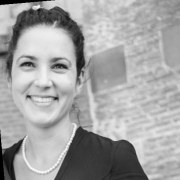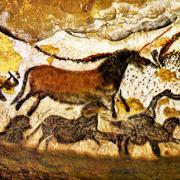Travelling exhibitions fighting crises: the collective workshop
Due to the workshop format this session has a capacity limited to 30 participants.
How does the world of travelling exhibitions pull through during global crises (Covid-19, the war in Ukraine, climate change)? Stakeholders of the touring world, hosts and producers, existing and potential, are invited to come together in an interactive workshop dedicated to innovation and resilience in travelling exhibitions.
Participants are invited to share experiences, reflect on obstacles, and come up with concrete ideas for touring exhibitions to continue to be a strong resource for collaboration between science engagement stakeholders. The workshop will feature a brainstorm session dedicated to the topics of exhibition development, partnerships and production, followed by results-sharing where key findings will be shared.
This session is supported by our partner Teo.

Session speakers
Travelling Exhibitions Coordinator
Despite 10 years of touring we were shaken by the pandemic. Our museum managed to collaborate with cultural institutions and partners around the world to continue to offer original exhibitions, despite the Covid-19 consequences on professional and commercial exchanges. Our experience had shown that flexibility is key. A travelling exhibit can be enhanced, updated, and adapted to suit new venues (educative documents, collections, subject...) and situations. This was even more true in the Covid context.
By matching some exhibitions to the pandemic expectations, exhibitions providers have been showing adaption capacities to thrive during these hard times, and some of these “last-minute pandemic changes” may have a long-lasting impact on the traveling exhibitions world.
Agnes will be sharing insights from multiple international developments as part of the Exhibitions development group.
Director, Lascaux III project
The huge restriction to transboundary transport and the increase of ocean freight have pushed Lascaux to rethink and redesign totally the exhibition. A new version reduces to 2 containers instead of 12, adaptable to any surface instead of requiring a 5m ceiling height and minimum surface of 1000m² has been created, offering the same scientific and educational content. Dr Olivier RETOUT will explain how he did with his team to get this result with a budget of less than 1/10th of the initial one.
The postponing and cancelling of temporary exhibits was common practice and a necessity for museums in 2020-21. One cause was the impossibility for people to travel between countries. Because of restrictions we tested a more flexible model with host museums in the production process - instead of delivering exhibits “turnkey”. We involved local resources and professionals as well as utilised host materials and resources to set up exhibits, and it worked! Paving the way for more sustainable delivery
Head of Wildlife Photographer of the Year Programme
The global pandemic reminded us in the most spectacular way that running a touring exhibition business is high risk. Logistically, financially, contractually. Faced with repeated lockdowns of our own, exhibitions stuck in other countries, the first two years of the pandemic forced us to manage an unprecedented crisis, relying on the museum community and mutual understanding and support. Initial responses to the crisis led to longer term changes and forced us to reconsider our ways of working. Pauline will share some of the key changes to contracts, financial models and partnerships established to manage risk in a new global environment.
Production, logistics and installation of travelling exhibitions, a rise to a challenge before Covid, made impossible during the pandemic?
How does this affect the future of our global industry? We experienced positive approaches and found goal oriented, creative solutions.
Cost of material, delays in domestic and international shipping as well as travel restrictions will remain as the challenge and transformation continues. Peter Elsaesser, CEO of MuseumsPartner, chair of the Austrian, member of the European Institution of Standards for global art logistic and chair of the Standards and Membership program of ICEFAT (International Convention of Exhibition and Fine Art Transporters) will share experiences and highlight feasible approaches for the global travelling exhibitions network.








